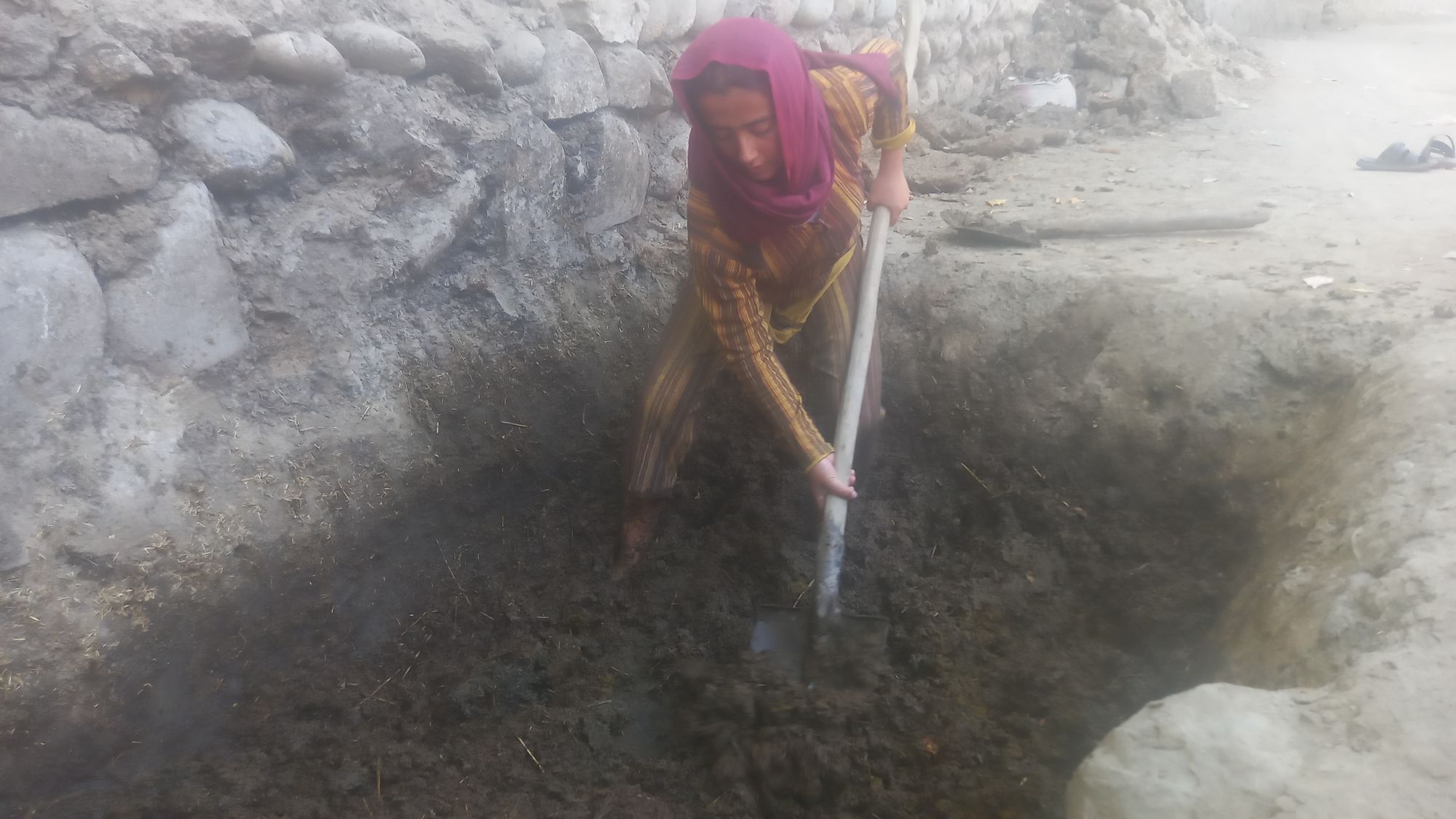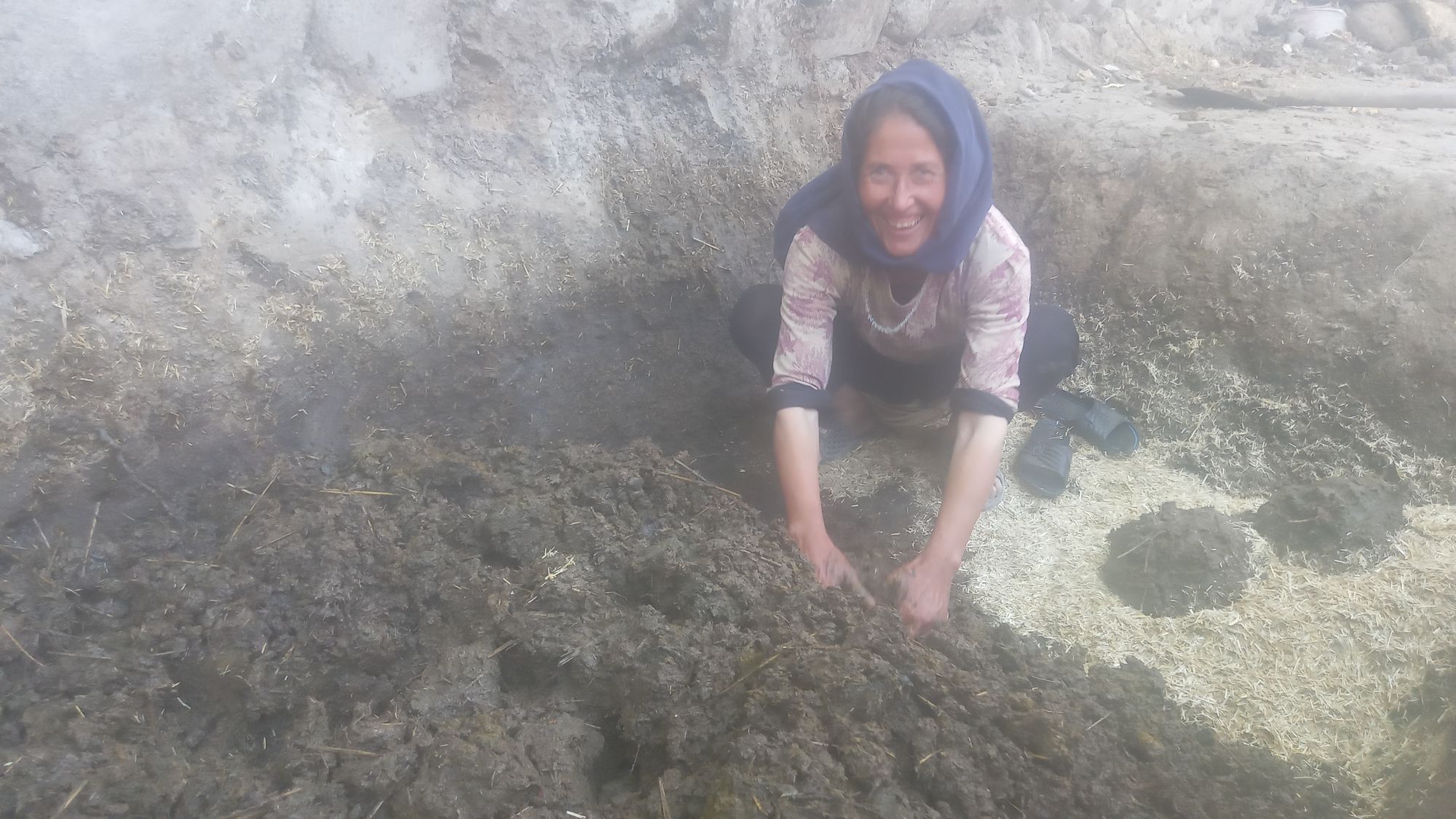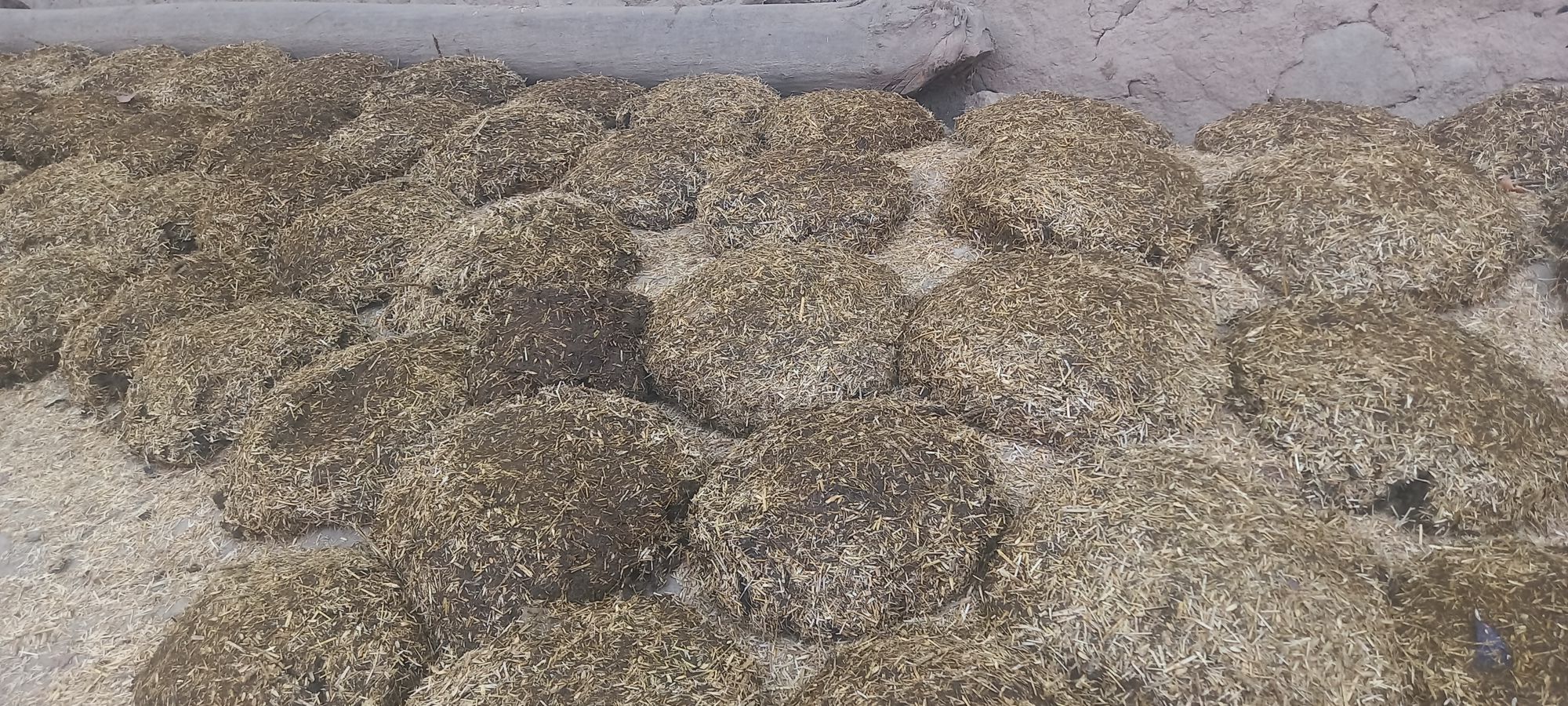Even Dung Must be Saved
Women in northeastern Afghanistan’s Badakhshan province earns a living by making dung cakes from cow excrement. Dung cakes are used as a fuel to heat up homes during winter.

Reporting by Shabana Farahmand, written by Mohammad Jawad Alizada
KHASH, BADAKHSHAN — “Life has no meaning for me, I only work to survive,” Gul Jan, a woman making cow dung cakes in Khash district, told Alive in Afghanistan. The cakes are locally called “Tapak” or “Chapak”.
Khash is a district in northeastern Afghanistan, located 33 kilometers south of Faizabad City, Badakhshan’s capital. The majority of Khash’s residents are Tajiks and Uzbeks. Agriculture, animal husbandry and horticulture are the main sources of income for the people of this district.
Life is hard and expensive everywhere, but for Afghan women like Gul Jan, who live with the most basic amenities, it's extremely difficult.
For the past ten years Gul Jan has earned a living making tapaks. She started working when her husband lost his ability to work. She is among countless Afghan women who became the breadwinners of their families for numerous reasons, including the disability or death of their male household members. For Gul Jan, it’s both.
She lost both of her sons more than a year ago when the Taliban took over Badakhshan. They served Afghanistan’s previous government as members of the security forces and were killed in the line of duty.
“They were the only source of my happiness. When you lose your loved ones and they go on a journey to never return, you lose all of your hopes and dreams,” Gul Jan said.

Gul Jan married her daughters off after they turned 14 and now lives alone with her husband. She says tapaks are usually made in the summer or early fall.
“First a hole half meter deep is dug, it can be as wide as you need. Excrement is then collected inside over the course of two weeks to a month,” Gul Jan said, adding that the process requires the excrement to remain wet, so water is periodically poured over the content.
When there is enough excrement to make the dung cakes, it is allowed to rest for a couple of days. After that process, two or three individuals climb into the hole and stomp all over the excrement, “To make it soft and smooth throughout.”
The content is then ready to be made into tapak. Hay is mixed with the tapak to make it dry and hard, then the contents are made into circular shapes. The tapaks are laid in the sun for two days and are stored in stables until winter comes.
“I get paid in tapak or given some rice and cooking oil in exchange for my work,” Gul Jan said without specifying the amount she gets paid.
This has been Gul Jan’s job, but she is not alone. 45 year-old Hasina, another woman from Gul Jan’s district has spent most of her adult life working as a tapak maker.
Hasina is still single and cites family disagreements as the reason for her celibacy. She is the only girl in her family, has two brothers and lives with her parents.
Hasina receives 30 tapaks a day in exchange for her work, which she uses in the winter to heat her home. This is her routine every year.
“Sometimes when the tapaks are more than what I need, I sell a bag for 100 Afghanis ($1.14). But that’s only in the summer when fuel for winter and firewood is cheaper. In the winter a bag of tapak can be sold for around 500 Afghanis because of its good quality and long lasting behavior,” Hasina told Alive in Afghanistan.

In this region of the world where people have so little to live with, nothing goes to waste. Animal excrement is either used for heating homes during winter or as natural fertilizer for agriculture.
Hasina spent the entire day making tapaks at Yalda Andishmand’s home, a young girl from her village and took nearly 40 tapaks as an exchange for work. Hasina’s father is a migrant farmer who works at different farms to earn a living for their family.
“My father did not let me get married and I remain single,” Hasina told Alive in Afghanistan.
Yalda is a 16 year old girl who has made tapaks for a while, but busied herself doing more house chores after the Taliban took over Afghanistan. Since the Taliban returned, girls were barred from going to school above 6th grade in most Afghan provinces.
Yalda’s father is a migrant farmer and her mother is a dairy farmer.
“I have made tapak since I was little, I pay those helping me in tapak or grain,” Yalda said. She wanted to become a civil engineer who would travel to all Badakhshan’s districts, but “I feel like my dreams are left unfinished now, since I can no longer go to school.”
